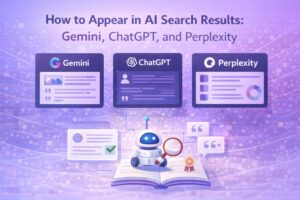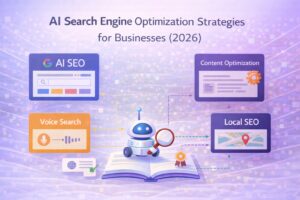Key SEO Changes Announced:
- AI Overviews:
- Introduction of AI-generated overviews in search results that synthesize information from various sources.
- AI overviews will handle complex, multi-step queries, breaking them down into manageable parts and providing comprehensive answers.
- Multi-Step Reasoning:
- Google’s Gemini model can perform multi-step reasoning, allowing it to handle complex queries by breaking them into sub-queries and solving them in sequence.
- Enhanced Contextual Understanding:
- Improved understanding of search queries in context, leveraging real-time data and extensive indexing.
- Visual and Multimodal Search:
- Integration of video understanding in search, allowing users to ask questions about videos directly within search.
- Dynamic Search Results Pages:
- Search results will be organized into clusters based on context, such as restaurant recommendations with specific features like live music or rooftop patios.
Impact on Search Rankings:
- Content Relevance:
- With AI overviews providing direct answers, traditional search results may be pushed further down the page. This reduces the visibility of organic links.
- Complex Queries:
- Sites that provide comprehensive and detailed information addressing complex queries will likely perform better. Content needs to be structured in a way that AI can easily synthesize.
- Visual and Multimodal Content:
- Greater emphasis on multimedia content. Videos, images, and other non-textual formats will become more important for Google SEO.
- User Experience (UX):
- Enhanced UX will be crucial, as search results will factor in real-time data and user context. Pages must load quickly and be mobile-friendly.
- Local SEO:
- Increased importance of real-time data and location-specific information for local searches, such as business hours and proximity.
Proactive Strategies to Improve SEO Results:
- Optimize for AI Overviews:
- Create detailed, high-quality content that answers specific questions comprehensively. Use structured data to help Google understand and categorize your content.
- Enhance Content for Multi-Step Reasoning:
- Break down complex topics into sub-sections or steps within your content. Use clear headings and logical flow to assist Google’s AI in parsing your information effectively.
- Embrace Multimedia:
- Incorporate videos, images, and infographics into your content. Use appropriate alt text and metadata to help Google index these elements.
- Focus on Local SEO:
- Ensure your business information is accurate and up-to-date across all platforms. Use Google My Business to provide real-time updates and engage with reviews.
- Improve Page Experience:
- Enhance mobile-friendliness, reduce page load times, and improve overall user experience. Use tools like Google’s Core Web Vitals to monitor and optimize performance.
- Leverage Contextual Clusters:
- Create content that fits into potential clusters identified by Google’s AI, such as thematic articles or guides related to your primary topics.
- Stay Updated on AI Developments:
- Keep abreast of updates from Google regarding AI capabilities and adjust your strategies accordingly. Participate in beta testing for new features when possible.
By adapting to these changes and proactively optimizing content and user experience, businesses can better align with Google’s evolving search algorithms and maintain or improve their search rankings.
About The Author
Marketing Team
The AOK Marketing Team is a diverse group of amazing individuals driven to help all of our clients succeed. Great people are everywhere, and we believe that people should control their workday, their work environment, and where they live. We have team members in 9 countries: United States, Canada, Egypt, Belgium, Ireland, Australia, India, Pakistan, and Hong Kong.
How can we help you?



